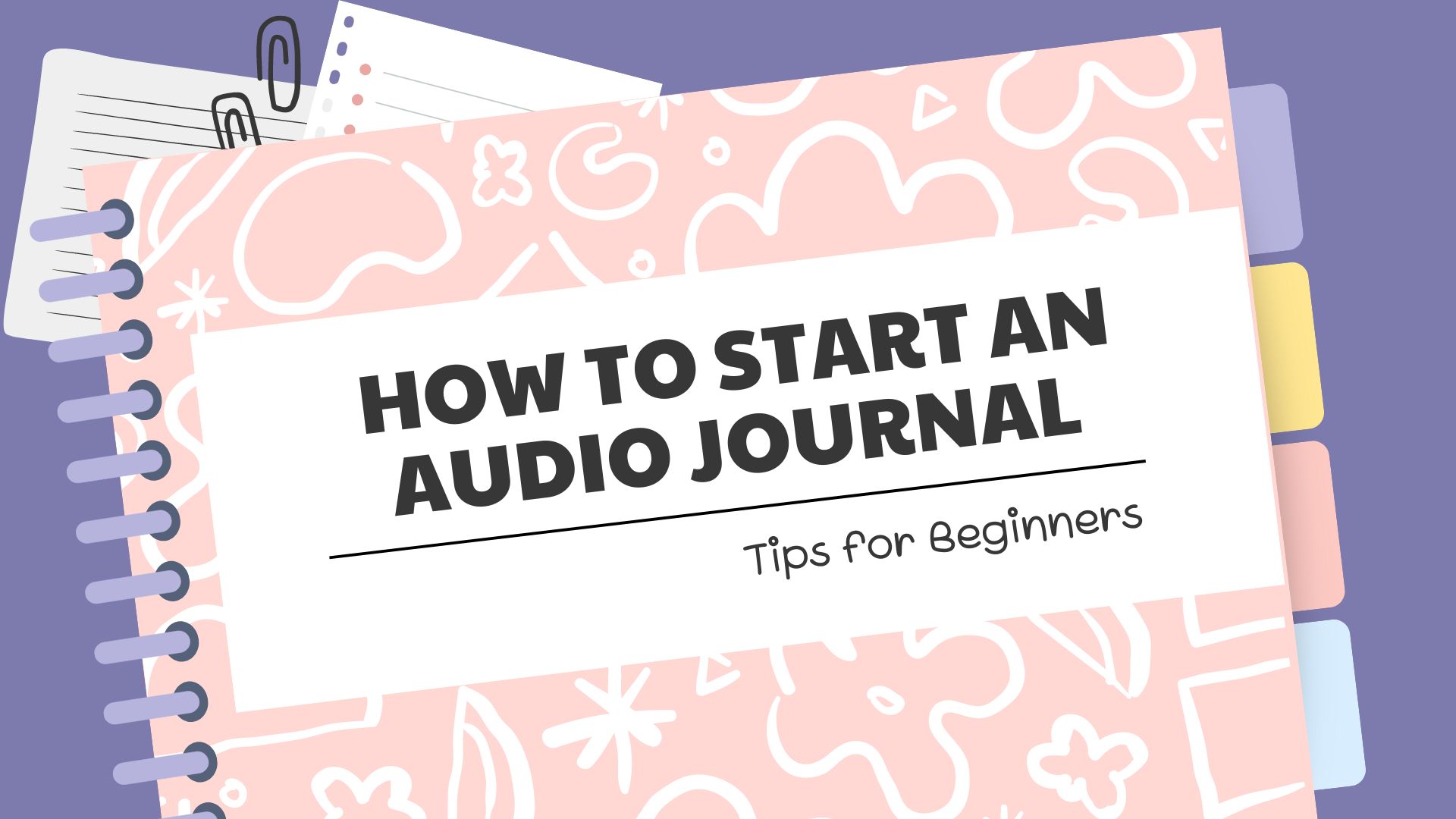Audio journaling is an innovative and effective way to capture your thoughts, feelings, and experiences without the constraints of traditional pen-and-paper journaling. Whether you want to document your day, reflect on personal growth, or brainstorm creative ideas, audio journaling offers a flexible and accessible solution. Here’s how to start an audio journal and make the most of this powerful tool.
Why Choose Audio Journaling?
Before diving into the steps, it’s essential to understand why audio journaling is beneficial:
- Convenience: You can record entries anywhere, anytime, without needing a notebook or computer.
- Expressiveness: Vocal tone, emotion, and inflection add depth to your entries, capturing nuances that written words may miss.
- Efficiency: Speaking is generally faster than writing, allowing you to capture more detailed and comprehensive thoughts.
- Accessibility: For those who struggle with writing or typing, audio journaling provides an alternative way to record their thoughts.
Getting Started with Audio Journaling
1. Choose the Right Tools
To start audio journaling, you need a reliable device and app to record your entries. Here are some popular options:
- VOMO AI: A versatile app that allows you to record high-quality audio, transcribe it into text, and organize your entries. VOMO is perfect for those who want to combine the benefits of audio and written journaling.
- Voice Memos: The built-in app on iOS devices is simple and easy to use, making it a great option for beginners.
- Evernote: This app offers voice recording capabilities and integrates with your notes, allowing you to keep all your journal entries in one place.
- Day One: Known for its sleek design, Day One supports audio journaling and offers various features to enrich your entries, such as tagging and location data.
2. Find a Quiet Space
To ensure clarity and reduce background noise, find a quiet place to record your entries. This will make your recordings easier to understand and more pleasant to listen to later.
3. Set a Routine
Consistency is key to effective journaling. Set a regular time for your audio journaling sessions, whether it’s daily, weekly, or whenever you feel the need to express your thoughts. Regular practice will help you develop the habit and gain more insights over time.
4. Speak Naturally
Don’t worry about being perfect. The goal of audio journaling is to capture your thoughts and feelings as they are. Speak naturally and freely, and don’t be afraid to express yourself fully. This will make your entries more genuine and valuable.
5. Reflect and Review
Take time to listen to your recordings periodically. Reflecting on past entries can provide valuable insights into your growth and patterns over time. If you’re using an app like VOMO, you can also take advantage of transcription features to read and organize your thoughts.
Tips for Effective Audio Journaling
1. Be Honest and Open
The more honest you are in your entries, the more beneficial your journaling practice will be. Don’t hold back; let your thoughts flow freely.
2. Use Prompts
If you’re not sure where to start, use prompts to guide your entries. Some examples include:
- “Today, I feel…”
- “Something that made me happy today was…”
- “A challenge I faced recently is…”
- “I’m grateful for…”
3. Organize Your Entries
Apps like VOMO allow you to tag and categorize your recordings, making it easier to find specific entries later. Take advantage of these features to keep your journal organized.
4. Experiment with Length and Style
There’s no right or wrong way to audio journal. Experiment with different lengths and styles of entries to find what works best for you. Some days you might record a quick two-minute reflection, while other times you might dive into a 30-minute deep dive into your thoughts.
5. Use Your Journal for Different Purposes
Audio journaling isn’t just for personal reflection. You can use it to brainstorm ideas, plan your goals, or even document your creative processes. Explore different ways to utilize your audio journal to maximize its benefits.
Enhance Your Audio Journaling with VOMO AI
For those looking to take their audio journaling to the next level, VOMO offers a range of features that can enhance your experience:
- High-Quality Recording: Capture clear and detailed audio entries with VOMO’s advanced recording capabilities.
- Transcription: Convert your audio recordings into text with high accuracy, making it easy to review and organize your thoughts.
- Automatic Title Generation: VOMO automatically generates titles for your transcriptions, making it easier to manage and locate your journal entries.
- Objective Analysis with AI: VOMO’s AI Assistant can help you review and analyze your entries from an objective third-person perspective, aiding in reflection and personal growth.
Starting an audio journal is a simple yet powerful way to document your thoughts and experiences. By choosing the right tools and setting a routine, you can easily convert your voice memos and dictation into text using advanced AI models that handle audio to text and speech to text seamlessly. With apps like VOMO, you can enhance your journaling practice by transforming recordings—even video to text or YouTube transcripts—into organized AI meeting notes, making it easier to review and reflect on your entries. Give audio journaling a try and discover the benefits of this modern approach to capturing and managing your life’s moments.


